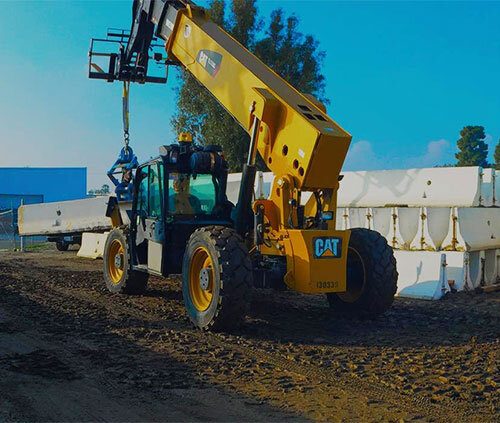Heavy Equipment Rental: Large Machinery for Any Kind Of Construction Task
Heavy Equipment Rental: Large Machinery for Any Kind Of Construction Task
Blog Article
Maximize Your Spending Plan by Recognizing the Expenses Related To Building Equipment Leasings
Understanding the complete scope of expenses related to building tools leasings is essential for maximizing your spending plan. While the initial rental cost might seem uncomplicated, numerous extra expenses-- such as transportation, gas additional charges, and maintenance-- can swiftly accumulate, affecting your financial preparation. Furthermore, understanding numerous costs and the intricacies of rental agreements can help stay clear of unexpected financial burdens. What approaches can be employed to efficiently manage these expenses and guarantee a much more reliable rental experience?
Overview of Rental Expenses
When considering building and construction equipment services, understanding the linked expenses is vital for effective budgeting and job planning. Rental costs can vary considerably based on a number of variables, consisting of tools kind, period of service, and area. The first rental charge usually mirrors the tools's market demand and its connected operational capabilities, influencing the total expenditure.
Along with the base rental price, supplementary costs may occur, such as transportation fees, fuel surcharges, and maintenance fees. It is vital to account for these extra expenditures to precisely analyze the overall cost of renting out devices. Furthermore, the rental duration can influence prices; longer services may qualify for discounted rates, while short-term services could incur higher daily charges.

Breakdown of Rental Rates
A thorough understanding of rental prices is necessary for service providers and job managers aiming to maximize their spending plans. Rental prices for building equipment generally consist of numerous elements, including base rates, time-based costs, and use charges.
Base rates are the core charges related to the leasing of the devices, often determined by the type and size of the equipment. These rates can vary dramatically, affected by elements such as equipment need, availability, and regional market fads. Time-based costs, which may be daily, weekly, or monthly, serve to fit different task timelines and rental durations.
Furthermore, rental prices may consist of usage fees, which are suitable when devices is utilized past a specified limit, ensuring that the rental business can represent deterioration. Seasonal need fluctuations can likewise impact rental rates, with peak construction seasons generally regulating greater prices.
Furthermore, comprehending the rental business's plans regarding upkeep and insurance can give additional understanding into the total cost structure. By evaluating these components, contractors can make educated choices, making sure the choice of rental equipment aligns with both job demands and spending plan constraints.
Added Charges to Consider
Understanding the details of extra fees is critical for service providers to handle their total service expenditures properly. Past the standard rental rates, various auxiliary fees can substantially influence the total price of tools leasing. These costs commonly include delivery and pick-up fees, which can differ based on distance and logistics included in moving the tools to and from the job website.
Additionally, some rental firms may impose fuel surcharges if the devices is returned with less gas than when rented out. It is likewise necessary to understand potential cleansing fees, especially for customized equipment that requires comprehensive upkeep after usage.

Completely reviewing the rental arrangement and making clear these extra fees ahead of time can assist contractors make certain and prevent unanticipated costs that budget plans continue to be undamaged throughout the job lifecycle.
Maintenance and Repair Service Expenditures
Routine repair and maintenance expenses are commonly overlooked elements that can substantially affect the overall expense of construction devices services. When renting out tools, it is crucial to take into consideration not click here now only the rental charges yet additionally the possible prices linked with maintaining the equipment in optimal operating condition.
Several rental companies include fundamental upkeep as part of the rental agreement; nevertheless, much more unanticipated break downs or comprehensive repairs can cause added expenditures. It's necessary to examine the rental agreement meticulously to understand what upkeep services are covered and what obligations fall on the tenant.
Moreover, tools that is not well-kept can bring about inadequacies on duty site, potentially causing delays and enhancing job expenses. To alleviate these dangers, it is advisable to carry out regular evaluations and maintain open communication with the rental service provider concerning any kind of concerns that emerge throughout usage.
Insurance Coverage and Obligation Costs
Insurance coverage and obligation expenses are crucial components that can significantly influence the total cost of building equipment services (equipment rental company). These prices make sure that both the rental company and the customer are shielded from prospective financial losses emerging from mishaps, damage, or burglary during the rental period

In addition, clients need to understand any kind of deductibles or exclusions in the insurance coverage plan, as these can impact potential out-of-pocket costs. Recognizing the terms of any kind of insurance coverage is vital to avoid unexpected expenses. Inevitably, budgeting for insurance coverage and liability costs can aid ensure a smoother review rental experience and secure versus financial dangers connected with construction jobs.
Verdict
In conclusion, an extensive understanding of the costs associated with building and construction tools leasings is necessary for effective budget management. Inevitably, notified decision-making concerning equipment services adds to the general success of construction endeavors.
Rental prices can vary considerably based on several factors, including equipment kind, duration of rental, and area (boom lift rental). The rental duration can influence pricing; longer rentals might certify for discounted prices, while short-term leasings might sustain higher day-to-day fees
By performing thorough study and engaging with trustworthy rental companies, service providers can efficiently browse the complexities of rental rates, eventually optimizing their financial sources.
Beyond the typical rental rates, numerous supplemental costs can considerably affect the total price of equipment leasing. Rental firms frequently supply liability insurance coverage that covers injuries to third celebrations or damages to home, while tools damage insurance can cover the expense of repairs or replacement if the rented out tools is damaged.
Report this page